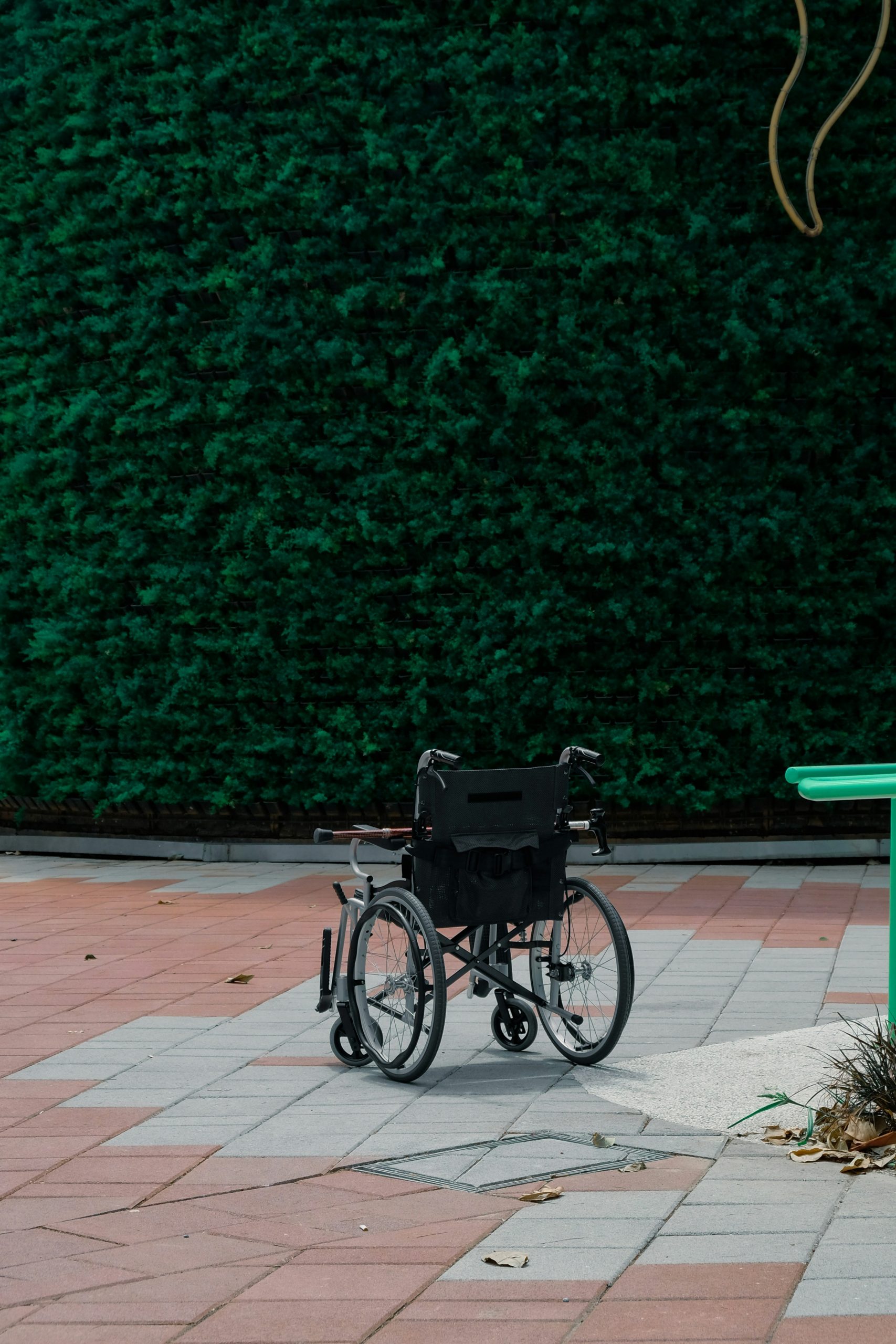#Islam
A Ramadan Quran Journal: A MuslimMatters Series – [Juz 30] Solace For The Sincere And Vulnerable

Published

This Ramadan, MuslimMatters reached out to our regular (and not-so-regular) crew of writers asking them to share their reflections on various ayahs/surahs of the Quran, ideally with a focus on a specific juz – those that may have impacted them in some specific way or have influenced how they approach both life and deen. While some contributors are well-versed in at least part of the Quranic Sciences, not all necessarily are, but reflect on their choices as a way of illustrating that our Holy Book is approachable from various human perspectives.
Introducing, A Ramadan Quran Journal: A MuslimMatters Series
***
Solace For the Sincere and Vulnerable
Keep supporting MuslimMatters for the sake of Allah
Alhamdulillah, we're at over 850 supporters. Help us get to 900 supporters this month. All it takes is a small gift from a reader like you to keep us going, for just $2 / month.
The Prophet (SAW) has taught us the best of deeds are those that done consistently, even if they are small. Click here to support MuslimMatters with a monthly donation of $2 per month. Set it and collect blessings from Allah (swt) for the khayr you're supporting without thinking about it.
by Sa’diyya Nesar
As a person with a physical disability, I have always naturally gravitated towards the opening of the 80th Surah—titled ‘Abasa (He frowned)—simply because of it including the encounter of the blind companion named Abdullah 



It is common to approach at the worst possible time when having a disability due to not necessarily having all the social cues to make an informed decision as to when it is the best time to approach. The social dynamics of one of our most vulnerable—a companion with a disability—approaching at not the best time while in the presence of the leaders of Qurayesh, therefore, naturally intrigued me. I hoped to further understand through this example how disability was approached in social context and how Islam helps eliminate social hierarchies that devalue the vulnerable.
I additionally understood when initially first reading the opening of Surah ‘Abasa how it is not easy to approach in the first place especially when having a disability. The fact that Abdullah 



Abdullah 





Disability [PC: Henry Co (unsplash)]
Prophet Muhammad 



Surah 93—titled Ad-Dhuha, the morning brightness—similarly depicts the layers of vulnerabilities that Prophet Muhammad 

I, therefore, thought for this article it would be interesting to explore both the opening of Surah ‘Abasa and Surah Ad-Duh—that are both within Juz 30—to pinpoint the parallels, especially in the context of providing solace to the sincere and vulnerable.
Below are 3 potential parallels:
1. Allah  mercifully intervenes at extreme periods of vulnerability
mercifully intervenes at extreme periods of vulnerability
Prophet Muhammad 

Allah 

“Your Lord has not forsaken you, nor does He hate you.” [Surah Ad-Dhuha: 93;3]
This revelation automatically removes Prophet Muhammad 


Similarly, at the beginning of Surah ‘Abasa, Allah 


Allah 

“How could you tell that he (blind companion) might have sought to better and cleanse himself?
He may have got a reminder and that reminder may have benefitted him.
As for him (leaders of Qurayesh) who thinks himself self-sufficient.
To him you attend.
Yet the fault would not be yours if he will not become pure.” [Surah ‘Abasa: 80;3-7]
Allah 









2. Allah  values the sincere
values the sincere
The way Allah 


Allah 

“And as for him who came to you running (with enthusiasm and zeal).
And is afraid (of Allah and His punishment).
Of him you are neglectful.” [Surah ‘Abasa:80;8-10]
Prophet Muhammad 







The fact that Allah 


Allah 

“And indeed the Hereafter is better for you than the present (life of this world).
Your Lord is sure to give you so much that you will be well satisfied.” [Surah Ad-Dhuha: 93;4-5]
The time as to when this was revealed was when there were very few believers and most of them were among the vulnerable. Allah 



3. Care towards our vulnerable—social equality and social responsibility in Islam
Allah 

Allah 

“Did He not find you an orphan and shelter you?
Did He not find you lost and guide you?
Did He not find you in need and make you self-sufficient?” [Surah Ad-Dhuha: 93;6-8]

Don’t ignore the orphan [PC: Katherine Chase (unsplash)]
The three scenarios of being an orphan without shelter, being lost, and being in need are all vulnerable scenarios a human being can endure. The need for shelter -especially out of being an orphan- is an extreme form of vulnerability. Allah 

Allah 
Allah 

“So do not be harsh with the orphan.
And do not chide the one who asks for help.” [Surah Ad-Dhuha: 93;9-10]
Prophet Muhammad 

Abdullah 


The fact that Allah 

Allah 
Related:
– The Missing Muslims: Living With Disability
– Structural Cohesion In The Quran [A Series]: Surah Abasa
Keep supporting MuslimMatters for the sake of Allah
Alhamdulillah, we're at over 850 supporters. Help us get to 900 supporters this month. All it takes is a small gift from a reader like you to keep us going, for just $2 / month.
The Prophet (SAW) has taught us the best of deeds are those that done consistently, even if they are small. Click here to support MuslimMatters with a monthly donation of $2 per month. Set it and collect blessings from Allah (swt) for the khayr you're supporting without thinking about it.

[Podcast] Ramadan Is Not For Your Private Spirituality | Dr Farah El-Sharif

Iranian Leader Khamenei Slain As War Brings Mayhem To The Gulf

Week 2 Recap: Has Your Teen’s Approach to Relationships Changed? | Night 14 with the Qur’an

NICOTINE – A Ramadan Story [Part 2] : Cold Turkey

When It’s Hard to Forgive: What Parents Need to Know About Islamic Forgiveness | Night 13 with the Qur’an

30 Nights with the Qur’an: A Ramadan Series for Muslim Teens

[Podcast] Guardians of the Tradition: Muslim Women & Islamic Education | Anse Tamara Gray

Where Does Your Dollar Go? – How We Can Avoid Another Beydoun Controversy

Who Am I Really? What Surat Al-‘Asr Teaches Muslim Teens About Identity | Night 1 with the Qur’an

An Unending Grief: Uyghurs And Ramadan Under Chinese Occupation

I Can’t Stop Thinking About Someone | Night 10 with the Qur’an

When to Walk Away from Toxic Friends | Night 9 with the Qur’an

What Islam Actually Says About NonMuslim Friends | Night 8 with the Qur’an

Week 1 in Review: Is Your Teen Actually Changing? | Night 7 with the Qur’an

Why Your Teen Wants to Change Their Muslim Name | Night 6 with the Qur’an
MuslimMatters NewsLetter in Your Inbox
Sign up below to get started
Trending
-
#Islam2 weeks ago
30 Nights with the Qur’an: A Ramadan Series for Muslim Teens
-
#Life1 month ago
[Podcast] The Parts of Being an Imam They Don’t Warn You About | Sh Mohammad Elshinawy
-
#Islam1 month ago
How to Make this Ramadan Epic | Shaykh Muhammad Alshareef
-
#Islam4 weeks ago
[Podcast] Guardians of the Tradition: Muslim Women & Islamic Education | Anse Tamara Gray










